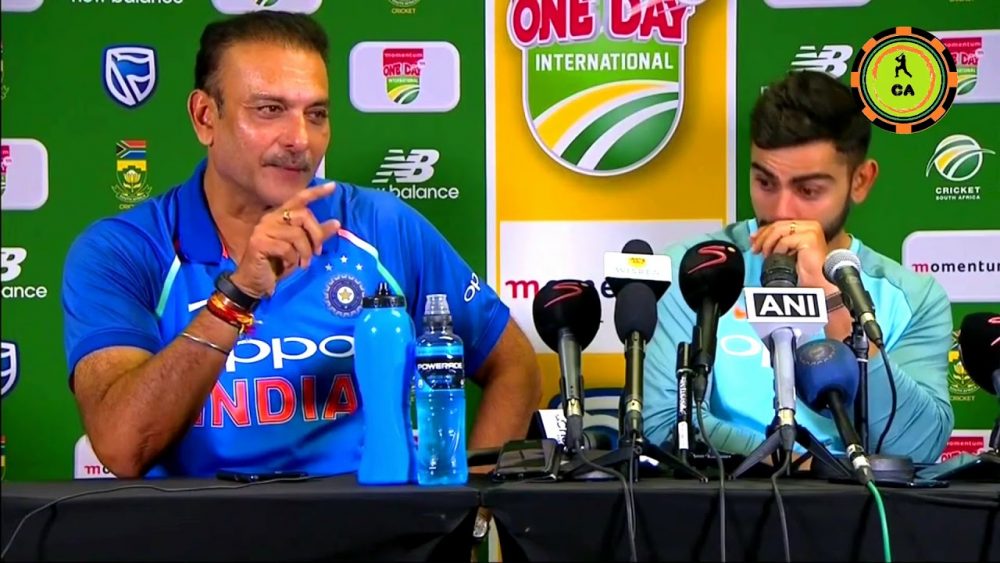Two stories in the past couple of days claiming that skipper Virat Kohli and Ravi Shastri would be grilled/questioned if the team’s performance doesn’t improve in the third Test intrigued me.
One of these stories, put out by a national news agency, is attributed to a BCCI official. The other, reported on the front page of a national newspaper, was sourced to the Committee of Administrators.
Since the BCCI and the COA have been at loggerheads on almost everything over the past 18-20 months, it’s fascinating they should concur on this issue, and almost simultaneously, as if in competition.
If both stories are accurate – and there is no reason to doubt this – I am compelled to put on a cynic’s hat and wonder if this is in preparation for another round of blame game between the BCCI and COA, given their fractious past.
Or perhaps both factions washing their hands of a fiasco, if indeed the team’s performance does not improve, much in the manner of babus who like to take credit whenever things go well, but pass the buck when they don’t.
The stories suggest there is regret now about the carte blanche given to Kohli and Shastri in choosing players, deciding the tour itinerary et al, but this does not absolve the administration of undermining its own authority. In fact, it makes them more culpable.
The fundamental issue, however, is not so much about the accountability sought from the captain and coach but the timing of these stories. For the powerful and highly paid positions they hold, Kohli and Shastri must necessarily be assessed on results. But when, is the question.
While the media may indulge in itself at all times in criticizing performance, by convention, postmortems by the establishment are done at the end of a series; or at the very least, till the series is decided.
Depending on how players, captain, coach and support staff perform, the administration reserves the right to retain or dispense with them thereafter. But as of now, the series is still open, and though India are struggling, it seems preposterous that administrators should be vocally negative.
Cricket can be unpredictable. Who can tell what may happen from here? By jumping the gun, not only have administrators betrayed a lack of understanding about the vicissitudes of sport, but also put the rank and file under duress instead of building their confidence.
Even if the third Test beginning Saturday does not go favourably for India, what exactly do these administrators propose to do? It is highly unlikely that the Kohli and Shastri will lose their positions. What’s more likely is that there could be changes when the squad for the remaining two Tests is named.
While the purpose of veiled warnings looks to be to bring Kohli and Shastri to heel, the greater pressure will actually be on other players, especially those struggling, whose places in the squad and careers are at stake.
That said, the responsibility on Kohli and Shastri to deliver cannot be deflected. Their pre-tour grandstanding (in fact this stretches back a year) promised big things, that have been rudely and badly overturned in the first two Tests itself.
True, the first Test was closely fought and could have gone either way. India had the worst of conditions at Lord’s too. A poorly planned itinerary (for which Kohli and Shastri must share onus if they’ve voted for this) hasn’t helped anyone either.
For instance, there wasn’t a single first-class game before the first Test, and there are none between Tests. Now, there is no way to assess the form of reserve players or the opportunity for those out of luck or rhythm to regain their confidence in a side game. How ridiculous!
But India’s misfortunes are not only because of some ill luck or a poor itinerary. That would be making excuses. Selection of the playing side for both Tests was questionable, especially at Lord’s where the weather and pitch screamed for an extra fast bowler instead of a spinner.
As seen over the past couple of series, this fits a general pattern of cocky excitability rather than an intelligent appraisal of conditions. The biggest worry now, however, is the collapse of confidence suffered by batsmen. This is pulling the team down badly and is the major challenge confronting Kohli and Shastri, particularly the captain.
Not only does Kohli have to sustain his own fine form, but must also help inspire self-belief in other batsmen. For, unless the top order finds its mojo, the contest could well remain, as Nasser Hussain put it acerbically, between “boys and men”.

